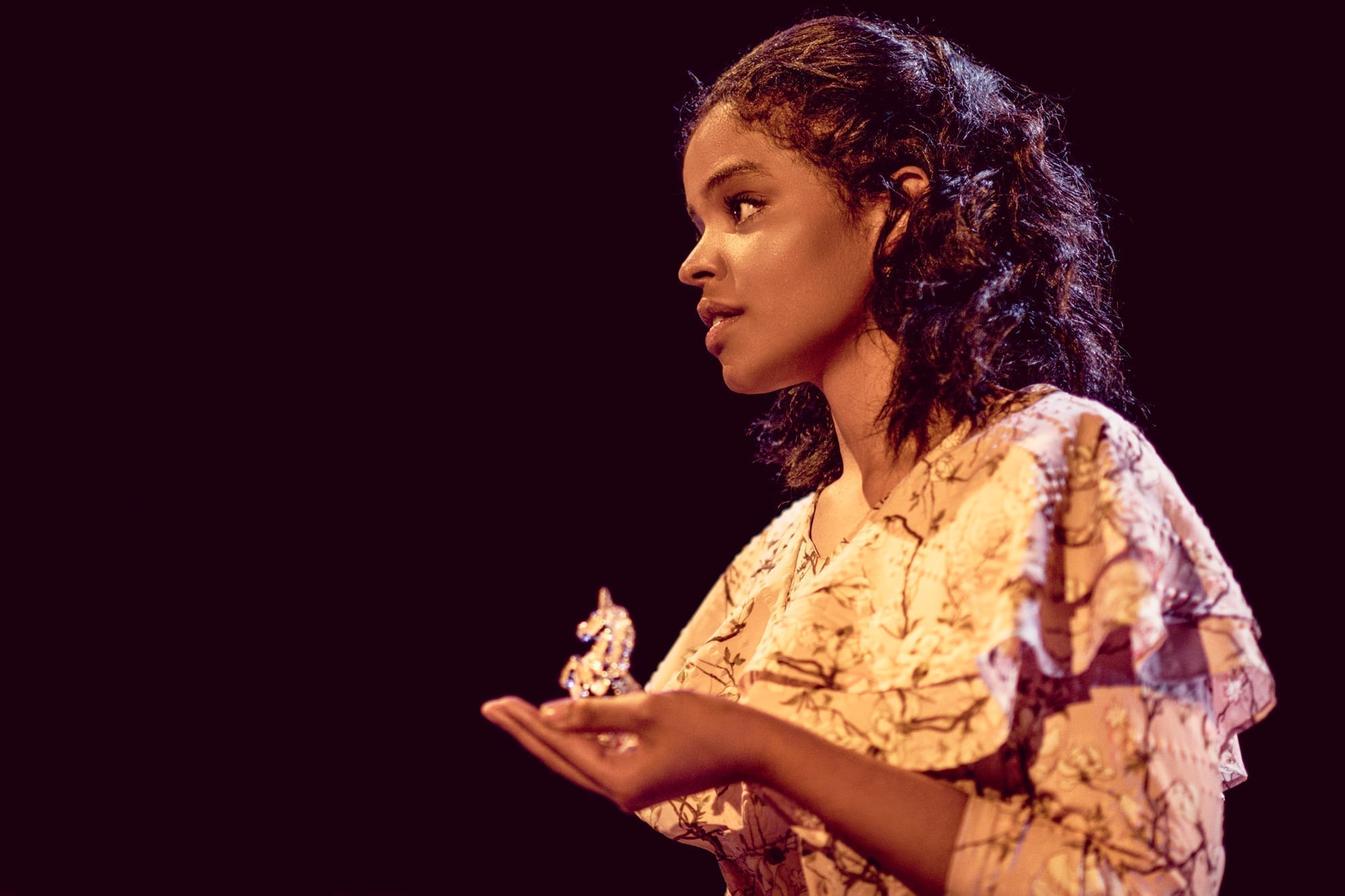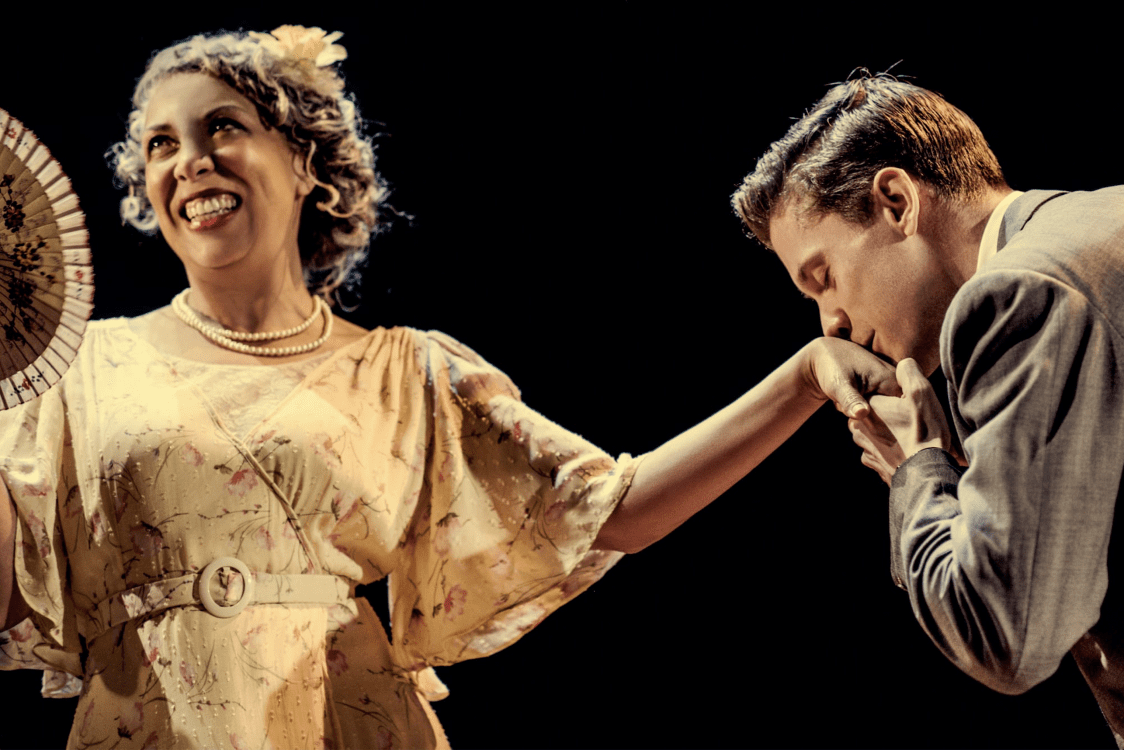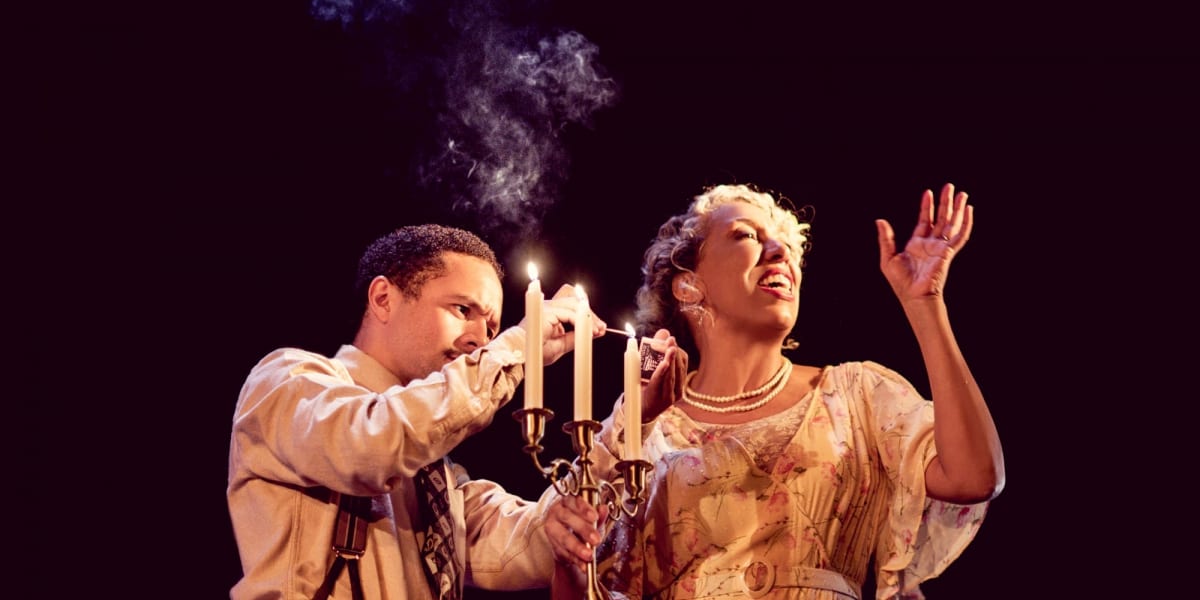The Glass Menagerie is a beautifully-written tragedy of missed opportunities, polluted dreams and claustrophobic domestic life in the thirties. The Arcola’s stage, with its exposed brick and rusting metal staircases leading up to a balcony works strikingly well for the stylishly simple set. However, although the drama is well-acted – electrifyingly so at points – it does not quite capitalise on the nuances of the play.

Director Femi Elufowoju Jr has reframed the play with a black cast as the central Wingfield family which, in the context of the pre-war American South, contributes to the background hum of tension in the play. The play moulds well, and interestingly, around this casting choice as an exploration of wealthy black Americans in the thirties, as Amanda Wingfield reminisces over the “gentleman callers” she used to receive who were “the sons of planters”. The household moves around her, the explosive and unpredictable mother, and the memory of the father who left without explanation but whose “larger than life-size” portrait has continued to dominate the back wall. Fixated on the stability that her life has been missing, she is obsessed with finding her daughter Laura a husband, and on keeping Tom close to home as the breadwinner.
Lesley Ewen plays the matriarchal figure with vibrant energy and keenly channels the character’s demanding and desperate vigour with extreme peaks and troughs of expressive emotion. But somewhere along the way this boom-and-bust portrayal of Amanda becomes slightly caricatured, tarnishing the nuances of this flawed personality. The emotional apogee of the play comes with the arrival of a gentleman caller, Jim O’Connor. However, as an engaged man he has to reject Laura, and Ewen’s appearances during the encounter become almost pantomimically comedic in their exaggeration. This removes the power of these scenes which should be focused on Amanda’s devastated hopes and Laura’s further dissolving self-confidence.

Naima Swaleh is admirable as the nervous and thoughtful Laura, providing a striking contrast to Amanda. Charlie Maher is likewise a brilliantly contrasting Jim O’Connor, whose vigour encourages Laura to begin to hold herself in higher regard, when his interest in her seems as though it may be a return of her high school infatuation with him. Yet again, there is some nuance that remains missing that allows Jim to leave the stage and just fall short of capturing the extreme disappointment felt in the immediately sobering bad timing that will not allow them to be together. Meanwhile Michael Abubakar’s Tom is truly energetic and carries a marvellous twinkle in his eye in moments when he addresses the audience but again, occasionally lacks subtlety in his performance.
This is an interesting play to watch and I enjoyed the evening, but I can’t help feeling that the fruits of Williams’ writing, the beauty of which is so striking in Tom’s opening speech, are never truly allowed to ripen in the hands of this particular production.

